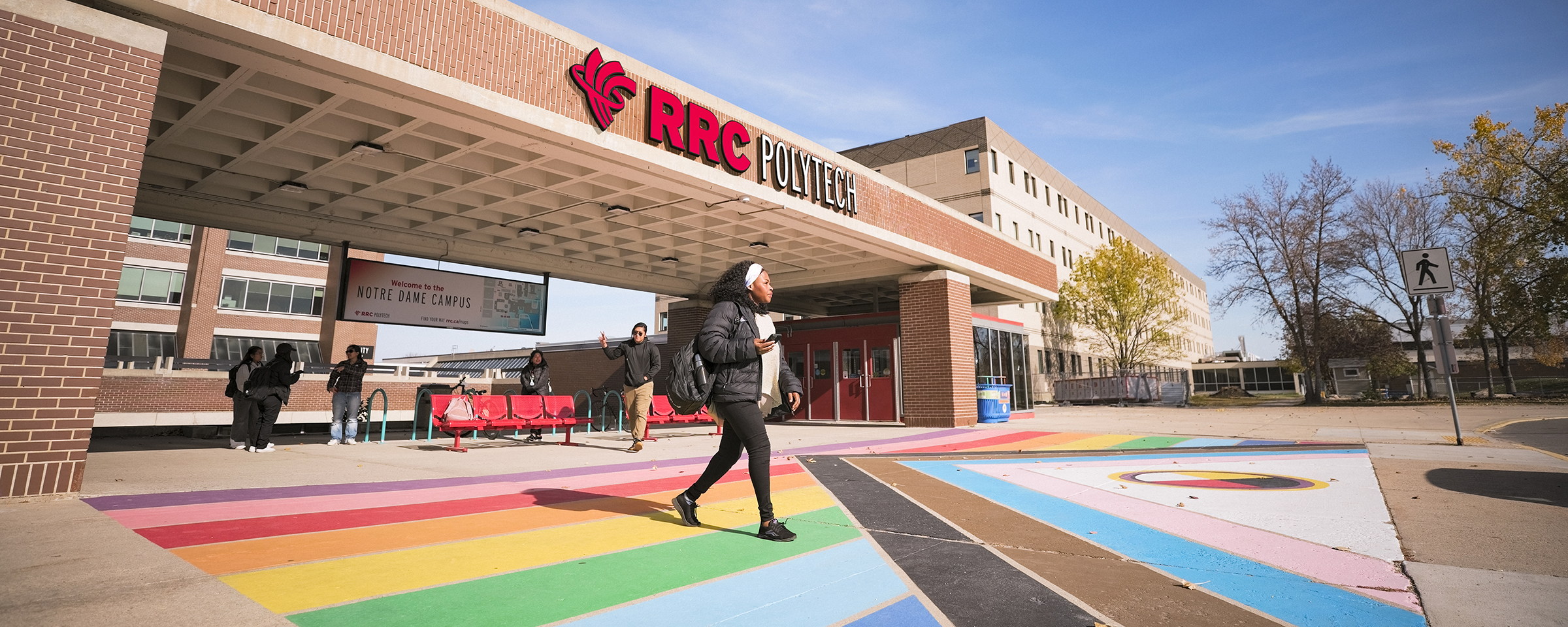Business students explore social innovation through newly-launched partnership with National Leasing
 National Leasing has opened up new doors for students in Red River College’s Business Administration and International Business programs, through a $50,000 donation that has enabled research in the emerging area of social innovation.
National Leasing has opened up new doors for students in Red River College’s Business Administration and International Business programs, through a $50,000 donation that has enabled research in the emerging area of social innovation.
The first step of the resulting student project — which culminated last week with a series of judged presentations — was for students to learn exactly what social innovation is, and to identify ways in which it can be implemented in different communities.
Tatjana Brkic, instructor of Applied Commerce and Management Education at RRC, says the ‘social innovation’ tag is one people are still struggling with.
“Social innovation is something that we as a global community have to figure out how to unravel,” Brkic said.
In its most basic form, social innovation occurs when an organization or concept meets a community’s needs. Social innovation fills gaps, addresses social issues, and develops the community. It’s about reducing negatives — like crime and poverty — and boosting economic development.
Sandy Rozecki, director of strategy and new business research at National Leasing, says innovation can be scary because people are often afraid of change.
She says social innovation takes a lot of courage.
“When we talk about innovation, we’re talking about something new, something different. Something different means change, and when we talk about change we as humans in our typical nature think ‘yeah, I’m not ready for that,’” Rozecki said.
She says National Leasing chose to donate to RRC because it, too, is an innovative institution.
“We have a great contingency of Red River College grads at our organization,” she said. “They are some fabulous, great thinkers, and they contribute significantly to the output of our organization.”
The second stage in the students’ learning process involved hands-on applied research.
Organised in 18 small groups, students were tasked with choosing an existing Winnipeg enterprise that they felt best represented social innovation. The only restriction was their choice had to be an organization with sustainable revenue, not a charity.
At this stage, the students’ research consisted of talking to local business and community leaders, to learn how they succeeded in implementing their socially innovative ideas.
This helped students learn more about business models and opportunities, but also about barriers that are specific to creating socially innovative enterprises.
The third stage of the research saw students presenting their findings to each other, and to a panel of five judges assembled to choose an overall winner.
Students voted among themselves to determine the five best presentations.
The enterprises featured in the winning presentations included Career Trek, an organization that gives work experience to youth; CitiGrow, a project focused on urban agriculture; Enigma Escapes, a company that provides interactive experiences; Grade Owl, a peer-to-peer textbook rental service; and Shawarma Khan, a Middle Eastern restaurant with an emphasis on healthy dishes.
Rozecki said the presentations might have been the hardest part for the students.
“It takes a ton of courage to get over this kind of thing [presenting], particularly on an idea,” she said.
Deb Tardiff, from the Manitoba Environmental Industries Association was one of the panellists at Wednesday’s presentations. She says it was a tough call for the judges.
“Ultimately though, we were taking a look at the impact socially of the project, and how well it actually lined up with social innovation.”
She said the panel of judges (whose ranks included Tanya Pomanski, Vendor Program Manager at National Leasing) also considered clarity and presentation style while assessing submissions.
“I think all of the teams deserve a real round of applause because they were beautifully done,” she said. “[This project] involved a lot of outreach.”
The judges were torn on the final decision and eventually rendered it a tie, with CitiGrow and Enigma Escapes (group members shown above) named the overall winners.
Brooke Maryniuk is a Business Administration student who presented as part of the Enigma Escape group. She says she learned a lot about social innovation and the company she interviewed, but also about working in a team environment.
“It feels really exciting. It feels like it was worth the effort that we put into it.”
International Business student Joao Paulo Giordani presented as part of the CitiGrow team, and says the lessons he learned about social innovation can also be applied to the College.
He says RRC stands to benefit from the diversified knowledge of its instructors and students, who can help come up with ideas, programs and research projects that have a positive impact on communities.
“I think RRC already has some innovative programs,” he says. “One example is the Intercultural Mentorship program, which not only helps international students to adapt, but also gives an opportunity for Canadians to understand different cultures.”
“To incorporate social innovation in any field is not that hard. We just need to apply our skills to something that serves society’s needs.”
